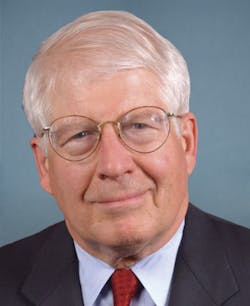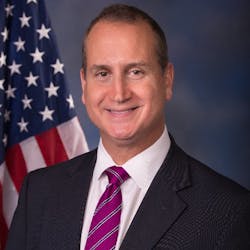House panel advances bill prohibiting truckers' meal, rest breaks by states
A House subcommittee advanced a Department of Transportation (DOT) funding bill that includes a provision blocking states from implementing their own meal and rest breaks for truckers.
However, during a brief hearing on July 11, Rep. David Price (D-NC), ranking member of the House Appropriations subcommittee on transportation, housing and urban development, said while he was not yet offering any amendments, the bill faces “many hurdles to get bipartisan support.”
Price said he was concerned with measures he believes would weaken labor rights and transportation safety. He did not address specifics.
California is currently the only state that requires paid meal and rest breaks for truck drivers, though several court decisions have opened the door for other states to consider similar steps. Trucking groups have suggested fleets are exempt under federal law from individual state measures.
A similar provision on meal and rest breaks at the state level was also included in a pending Senate bill.
Overall, the House legislation would provide $17.8 billion in discretionary funding for DOT in fiscal 2018. That is almost $650 million below current level, but about $1.5 billion above President Trump’s budget request.
It included $758 million for the Federal Motor Carrier Safety Administration (FMCSA), and $45 billion for the federal-aid highways program from the Highway Trust Fund.
There is also $100 million in new funding for automated vehicle research and development.
Subcommittee chairman Mario Diaz-Balart (R-Fla.) called the autonomous investment an important tool for DOT to keep up with this “emerging technology, which is now a reality.”
While the bill contains millions in grant funding, it also eliminates the Transportation Investment Generating Economic Recovery (TIGER) program. That program was created as part of the stimulus act by President Obama, and proved to be a popular tool at the state and local levels.
“Republican and Democratic mayors and governors across the country are clamoring for more TIGER grants,” Price said. “Sometimes it seems the program’s only fault in the view of its critics is that it was established by President Obama.”
Also included is a one year delay for livestock and insect haulers from the federal electronic logging device mandate.
The added provisions are opposed by the Teamsters union.
"These riders are unwise and dangerous to the public," said Teamsters general president James P. Hoffa. "They are putting special interests ahead of the public interest. These provisions ignore decades of state law and, in some cases, change the law before it is even enacted."
About the Author
Neil Abt
Neil Abt is a former FleetOwner editor who wrote for the publication from 2017 to 2020. He was editorial director from 2018 to 2020.


